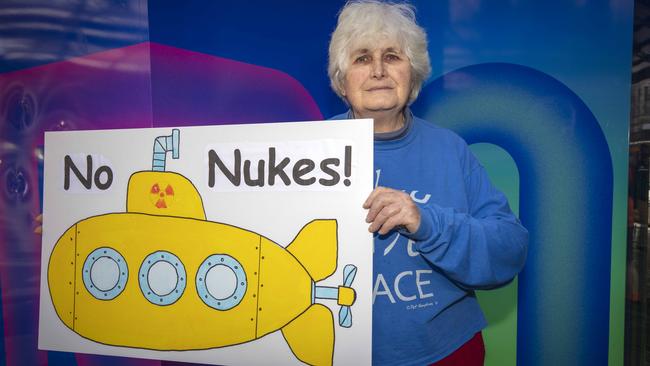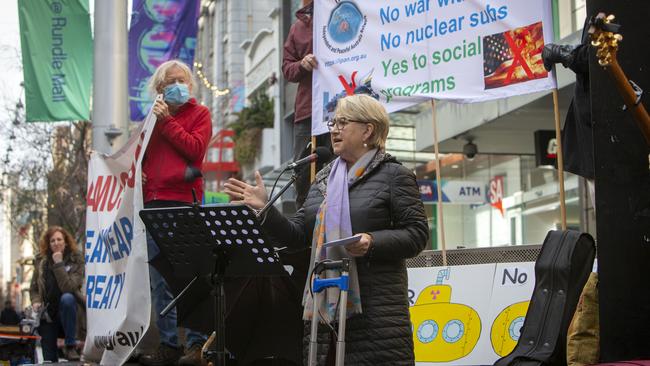‘Nuclear war at home’: Protesters say SA subs deal is putting us in the firing line
The No Nuclear Subs Alliance has protested against South Australia’s nuclear-powered submarine program at a rally in Adelaide on Friday.
SA News
Don't miss out on the headlines from SA News. Followed categories will be added to My News.
Protesters opposed to South Australia’s nuclear-powered submarine program have marked the anniversary of the infamous atomic bombings of Hiroshima with a rally in the heart of Adelaide.
Several members of the No Nuclear Subs Alliance and passers-by stopped at Beehive Corner on Rundle Mall on Friday to protest against the AUKUS submarine deal.
“No more Hiroshimas” was the message of the rally, as Saturday marks the 77th anniversary since an atomic bomb was dropped on the Japanese city of Hiroshima by the US, killing an estimated 140,000 civilians and leading to the end of World War II.
Campaigner Anne McMenamin said the AUKUS partnership was setting Australia on the path to a similar event.
“Nuclear submarines are weapons of offence, not defence,” she said.
“They put us in the firing line for nuclear war at home, and deepen Australia’s complicity in US threats of nuclear destruction in our region and around the world.”

Greens Senator Barbara Pocock spoke at the rally and urged the government to lead the way in the de-escalation of tension in the region.
“We’re in dangerous times; we have a lot of highly armed people who have all kinds of intentions in our region,” she said.
“We do not want to walk blindly into any conflict.”
She said Liberal Senator Simon Birmingham had urged her not to attend the rally on Friday.
“I particularly say to Senator Birmingham and to the government, which used to be there and is no longer, you spent $5bn on a submarine contract without any outcome,” she said.
“Isn’t that an argument for a sensible conversation about the future of our spending in our defence forces, and about the economics of what’s appropriate?
“We must not increase the risks of nuclear war on our planet. It is alongside the climate crisis, as a major threat to the security of our people and our citizens”.
The federal government has been contacted for comment.
More Coverage






